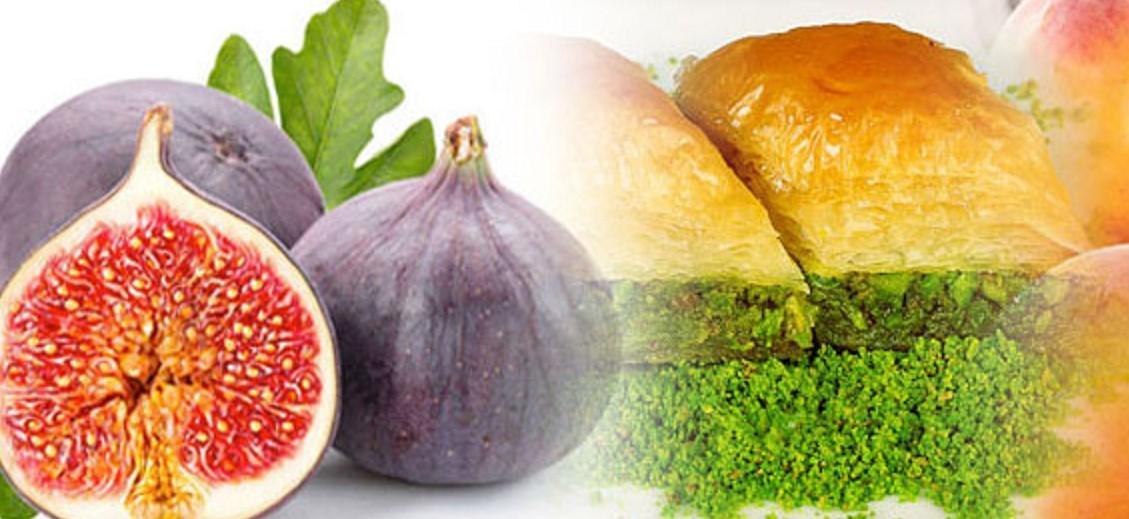
After almost two months following the devastating earthquake, the need for help might be even more necessary for the people affected by the disaster, especially those who are producers. As we all know, nature dictates our lives, especially when working in the fields, vegetable gardens and fruit orchards, one has to obey the calendar of nature. The animal has to be milked, and milk cannot wait to be turned into cheese and yogurt. In the past two months, there have been desperate attempts to sell the products of quake-affected producers, such as the urgent call to pick and sell lemons, in fear that the trees won’t bloom for the next year if not picked. Then, another call was to sell the exquisite pale whitish orange-fleshed pumpkins, apparently stocked for the exquisite pumpkin sweet of the southern quake-hit province of Hatay, but as all the local sweet shops and restaurants were gone, there were no buyers. There were tons and tons of pumpkins to be sold, otherwise destined to rot. The network created to sell the pumpkins proved to be efficient, and soon not only chefs in Istanbul but also big market chains were putting in orders. Soon we started seeing lemons and pumpkins in our local corner market chains, proudly with a tag showing the origin. These attempts demonstrated that such immediate actions can create wonders for producers, but never enough, there have to be more sustainable ways to support the livelihood of all the food producers in need.
The earthquake region is renowned for its amazing range of products, and a good number of local products have Geographical Indications. The sole NGO in Türkiye for promoting special local products is YÜciTA, founded in 2012, a voluntary research network consisting of members from many regions of the country, from different institutions and organizations, with different profiles and backgrounds. First, we have to see the background of the organization. The Turkish full form of YÜciTA, translated as “Local Products and Geographical Indications Türkiye Research Network,” was founded by Prof. Dr. Yavuz Tekelioğlu and Prof. Dr. Selim Çağatay on October 2012 at the end of the third International Antalya Geographical Indications Seminar. The network idea has its origins in the “Center for Economic Research on Mediterranean Countries”, which was established at Akdeniz University after the Barcelona Summit in 1995. This Center was again founded by Professor Dr. Yavuz Tekelioğlu and his team earlier in 1997, which was established by considering the Mediterranean identity of Türkiye and Antalya, and since then, carried out its research on Local Products and Geographical Indications within the framework of projects carried out with Mediterranean countries and the Mediterranean Agricultural Institute in Montpellier, France. Actually, the Geographical Indication is the core of the whole network; the lower caption “ci” in the title stands for Coğrafi İşaretleme” in Turkish, which is the Turkish for “GI” products.
Last week on April 12, YÜciTA organized a big Zoom meeting, bringing together a great number of stakeholders from the earthquake zone, especially women’s cooperatives and producers’ representatives and probable buyer parties. The aim of the event titled “Yücita Earthquake Solidarity Meeting, Hand in Hand with Locals,” was to reach out to producers that grow or make products with GI label, but not only confined to those, and the long-term aim was to search for more products in the region that deserve to be recognized. They describe the earthquake region as the castle of geographical indications and the gastronomy center of the country. Of the 1330 registered geographical indications that Türkiye currently has, 337 (25 percent) are registered in the earthquake-affected cities. This whopping number of GI products are not only true representatives of cultural identity and culinary culture but also provide significant employment and create great economic value.
The meeting aimed to protect these values and support the producers, with discussions focusing on the production potential in the region and how to both safeguard and sustain them. The event brought together producer cooperatives from the earthquake region and stakeholders of the gastronomy sector, chain markets, restaurants and sector representatives, seeking ways to have a more effective network from producer to consumer, a direct link that can meet urgent needs of support. Many participants were interested in a wide range of topics ranging from digital marketing, packaging, production facility structuring, and product development and expressed their willingness to support in the headings. It was interesting to listen to especially local women’s initiatives, their dreams are ever-inspiring, and their resilience to recover from the disaster was remarkable, giving hope for the future. Creating bonds with producers and buyers is the whole idea of the network, as its name indicates the organization is a volunteer network with the primary objective of supporting local culinary values. This inclusive meeting was announced as the first one, with many others to be organized in the near future, hopefully including more and more cooperatives and women organizations in the area, and even being an agent in others mushrooming and creating businesses to recover the livelihood of communities in disaster-hit area.